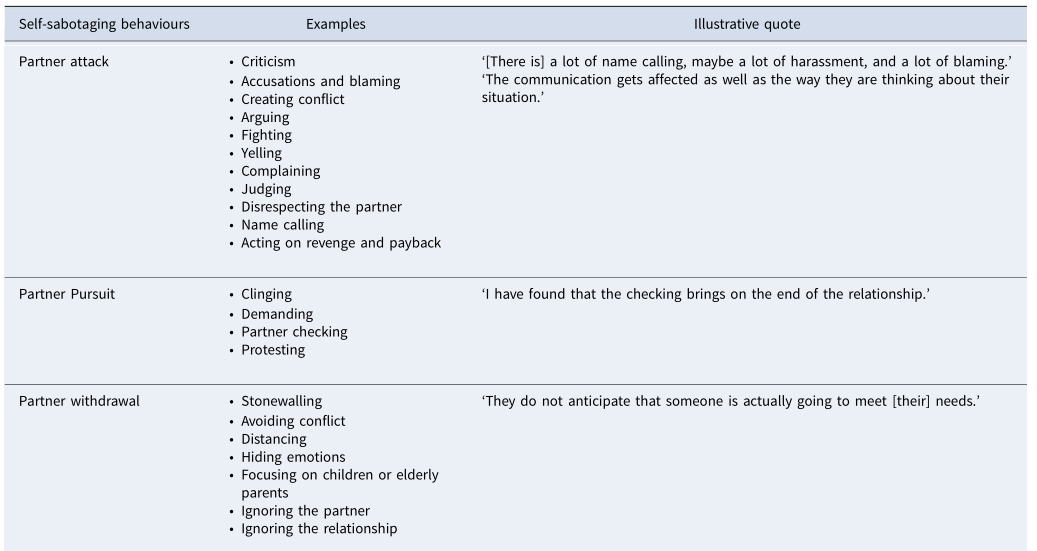Introduction
General Purpose: To elucidate the theme of psychological problems in relationships.
Specific Purpose: To highlight the issue of self-sabotage in relationships, its reasons, and warning signs.
Central Idea/Thesis: Self-Sabotage is a negative defense mechanism used to protect one’s self-image, but healthy relationship habits can be built by recognizing the warning signs.
Here I will present the essential issue of relationships, known as self-sabotage: it is a dangerous and destructive behavioral pattern. Thus, it is extremely important to know how to cope with that. I believe that scientific evidence is the best aid in understanding the issues of relationships and solving them. The first point I will describe is the definition of self-sabotage; then, I will show its signs, strategies, and reasons behind them.
What Is the Self-Sabotage
Generally speaking, it is when one intentionally tries to break everything that one loves. According to the research of Peel and Caltabiano, the full definition is that it is the behavior where partners develop various self-destructive patterns (4). For example, they tend to worsen conflicts instead of solving them, shouting at each other, getting irritated, or closing. In that way, self-sabotage is destructive and must be studied and better understood: one must know the dangers.
Its Warning Signs
This behavior has clearly defined signs which should be identified and considered. Here I will show the part of the table from the research of Peel et al. where you can see some clear examples of behavioral strategies (5). Aggressive ones include judging, shouting, demanding, and other types of active and usually conflict behavior. Defensive ones include emotional withdrawal, stonewalling, emotion hiding, and other behaviors based on ignoring and closing.

Reasons Behind It
By understanding the reasons for the sabotage, one is able to stop this behavior. According to the study of Peel and Caltabiano, the most widespread reason for this behavior is fear of being hurt or rejected (7). It leads to aggressive or defensive behavior just to not be hurt. People cannot open to each other, which is essential for relationships (Peel et al. 7). Other reasons include high expectations and self-esteem problems: a person has some picture in mind and irritates when this picture crushes against reality.
Conclusion
The problem of self-sabotage is widespread; perhaps everyone engaged in some close relationships faced it at least once. This is irrational and destructive behavior, usually leading to emotional suffering. Despite being dangerous and usually inconspicuous at first, the self-sabotage has clear signs, displays, and reasons, which should be studied. I think that everyone must know about the destructive elements of their behavior and be ready to stop them.
Works Cited
Peel, Raquel, et al. “Defining Romantic Self-Sabotage: A Thematic Analysis of Interviews With Practising Psychologists.” Journal of Relationships Research, vol. 10, 2019. Crossref, doi:10.1017/jrr.2019.7.
Peel, Raquel, and Nerina Caltabiano. “Why Do We Sabotage Love? A Thematic Analysis of Lived Experiences of Relationship Breakdown and Maintenance.” Journal of Couple & Relationship Therapy, vol. 20, no. 2, 2020, pp. 99–131. Crossref, doi:10.1080/15332691.2020.1795039.